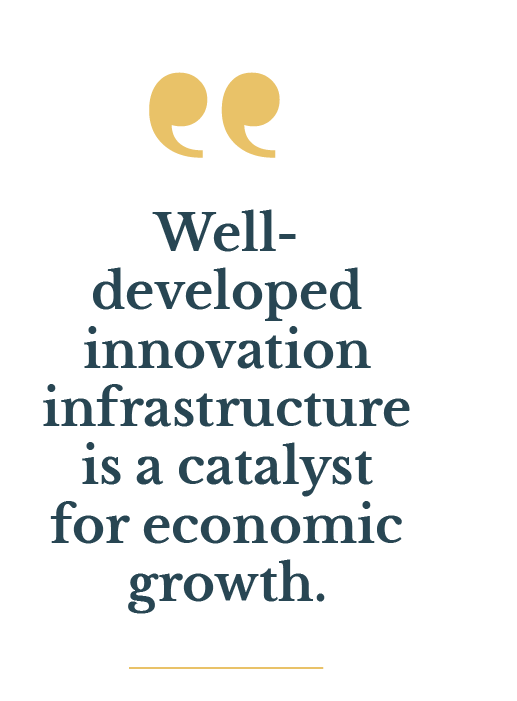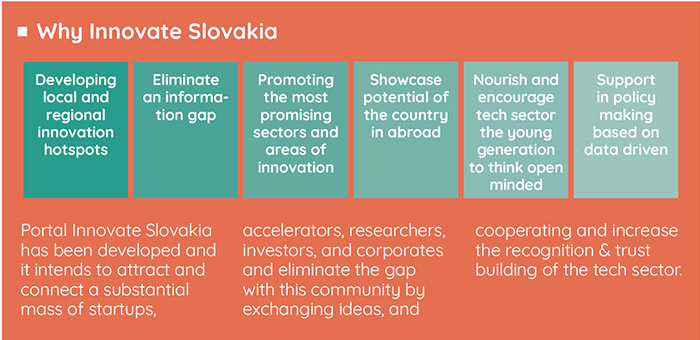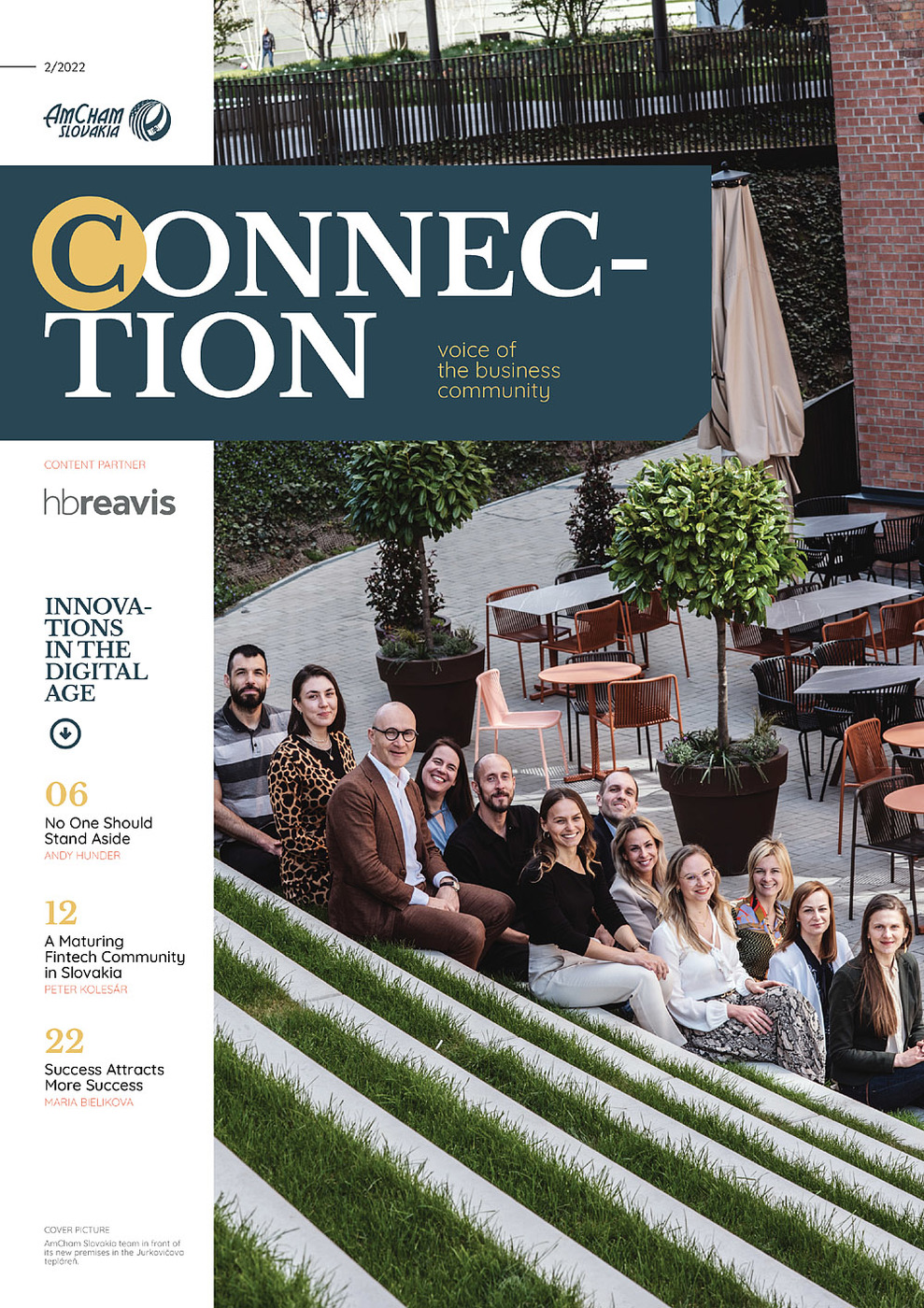The contribution of scale ups to the economy is impossible to overlook also in Slovakia thanks to companies such as Martinus, Dedoles, Exponea, Vacuumlabs, sli.do and many others. Together with their stories, Innovate Slovakia brings the whole story of the Slovak innovative ecosystem.
Nowadays, Slovakia is better positioned to direct more support and funding towards innovative entrepreneurs and innovators. If supported and nurtured, sector-specific innovation communities can drive Slovakia’s regional economic growth, competitiveness, and attractiveness. However there are still some discrepancies that stunt the innovation progress in respect to the potential Slovakia has.
Several problematic areas negatively affect R&D and the knowledge economy in Slovakia. Here’s a list of some of the top issues:
- Entrepreneurship culture not sufficiently developed
- Legal issues - copyrights
- State support and interconnectedness with businesses, education platforms, R&D and other stakeholders that are a part of the ecosystem
- Complicated system and bureaucracy
- Tax disincentives
- Undeveloped capital markets - more sophisticated solutions needed
- Law enforcement - needs to be enhanced
- Diversification of the Slovak economy
- Missing talents and experts - Slovakia is a country with the highest number of university students studying abroad (who rarely return home upon finishing their studies)
- Insufficient quality of the higher education (poor quality of Slovak universities in global ranking)
Doing business is not a skill that most Slovaks have in their DNA. The lack of compulsory education in this field within our system means that most young talented graduates are not motivated to develop their career this way. It is even more important to support and educate people of all age groups to move and act as self-businessmen.
 Examples from abroad demonstrate that supporting innovation has a boosting effect on economic development. Several EU countries such as Estonia, Portugal or Poland strongly support innovation not only financially but also through a legislative environment conducive to innovation. Specific examples include the simplicity of starting a business, tax incentives to support innovation, functioning e-government or so-called startup visas, which allow innovators from outside the EU to develop their ideas within the country. This makes these countries attractive destinations for technological talent, as well as for private investors.
Examples from abroad demonstrate that supporting innovation has a boosting effect on economic development. Several EU countries such as Estonia, Portugal or Poland strongly support innovation not only financially but also through a legislative environment conducive to innovation. Specific examples include the simplicity of starting a business, tax incentives to support innovation, functioning e-government or so-called startup visas, which allow innovators from outside the EU to develop their ideas within the country. This makes these countries attractive destinations for technological talent, as well as for private investors.
Slovakia has its specifics – fragmentation being one of them. We have the highest number of universities per capita; we also have almost the same number of political parties as Germany, a country with a population 15 times larger than Slovakia. Although the innovation agenda has been shifted directly under the Government Office, support for innovation is still fragmented, falling into three different sectors (Ministry of Economy, Ministry of Education and Ministry of Investments, Regional Development and Informatization).
Governments and responsible stakeholder groups should be more aligned with communities that need more tailor-made support to thrive, may it be a better regulatory environment, suitable public funding schemes, or more collaboration with other parties. Some innovation communities function well more or less independently, while others lag behind due to being disconnected from the critical points of support.
Well-developed innovation infrastructure is a catalyst for economic growth. As numerous reports and rankings show, sector-driven innovation communities can be crucial in developing local & regional innovation spots. This multiplying effect will help retain and attract talent, create meaningful links between startups, corporates, and universities, and make the R&D base more attractive.

Diana Polónyi, Communication & Public Affairs, Innovate Slovakia Lead



Follow us